The number of UK electric vehicle (EV) charge points in the UK increased by 8% from July to September – up 2,626 chargers to 34,637 public devices, new figures suggest.
The newly published data, from the Department for Transport (DfT), also shows an increase of 7% (421 devices) in rapid or above chargers.
As of October 1, of the 34,637 charging devices installed in the UK, 6,395 were rated rapid or above and 19,746 were rated fast chargers.
Of these, 17,179 were designated as destination chargers, this represents 50% of all public charge points, and 11,218 were designated as on-street chargers, representing 32% of all charging devices.
Rapid charging or above devices are those where the fastest connector is rated at 25kW and above and includes charge points classified as either rapid or ultra-rapid.
Slow charging devices are from 3 kilowatts (kW) to 6 kW; fast charging devices are 7kW to 22kW; rapid charging devices are from 25kW to 100kW; and ultra-rapid charging devices are 100kW-plus.
Proportionately, the largest increase in installations was within the ultra-rapid device category, which increased by 16% in the last quarter (albeit from the lower base than other categories), accounting for 295 charging devices.
Ultra-rapid charging devices are still the smallest overall category with 2,084 devices.
Proportionately, the smallest increase in charging devices installations was in the slow charging devices categories, with an increase of 4% or 337 charging devices.
Fast-charging devices are still the most common category to be publicly installed, growing by 10% or 1,868 devices.
Regional disparity in charge point growth
The DfT data highlights how there is an uneven geographical distribution of charging devices within the UK.
Some UK local authorities have bid for UK Government funding for charging devices, and others have not.
Most of the provision of this infrastructure has been market-led, with individual charging networks and other businesses (such as hotels) choosing where to install devices.
London and Scotland had the highest level of charging provision per 100,000 of population, with 122 and 60 devices per 100,000 respectively.
In comparison, the average provision in the UK was 52 per 100,000.
Northern Ireland had the lowest level of charging device provision in the UK, with 18 devices per 100,000, followed by the North-West and Yorkshire and the Humber with 30 and 33 devices per 100,000 respectively.
Scotland had the highest rate of rapid device provision of 15.1 rapid or quicker devices per 100,000, while the average provision in the UK was 9.5 per 100,000.
Rapid or quicker device provision was lowest for Northern Ireland with 1.2 rapid or quicker devices per 100,000.
Wales and North-West were the second and third lowest regions with 7 and 7.5 rapid or quicker devices per 100,000 respectively.
Kim Royds, director of EVs at British Gas, said: “The universal adoption of EVs will only happen if the supporting charging infrastructure is widely available and easily accessible.
“This means extending charge points beyond towns and cities and into all public spaces, including in rural and remote areas.
“Local councils have an important role to play in offering these provisions and helping to expand the UK’s EV charging infrastructure.
“Our research found that councils are planning to double publicly available charge points, with 16,500 to be installed over the next 12 months – a great step in towards an electric future.
“While this is encouraging, we must start to see more joined up investment across public spaces, privately owned-premises and at home charging if we want the roll out EVs to be successful.”
All regions, apart from North-East, across the UK saw an increase in total charging devices between July and September 2022.
West Midlands had the greatest increase at 16.7%, whilst Northern Ireland had the smallest increase at 4.3%.
London had the greatest increase in absolute number of devices at 546 devices, contributing to 20% of the increase in devices across the UK in this period.
After having the largest increase in the previous quarter (14.2% from April to July 2022), the North-East saw a decrease in the number of charge points by 1.1%, this represents a decrease of 13 devices.
Jon Lawes, managing director for Novuna Vehicle Solutions, told Fleet News that 2,626 new public charge points is more than we have seen installed in any comparable period in the past decade, but it is “still not enough”.
“Demand for public devices continues to rise considerably faster than supply,” he said. “The ratio of ratio of vehicles to charge points has grown from 5:1 to 15:1 in just three years, and we forecast will hit 54:1 by 2030. https://www.novunavehiclesolutions.co.uk/media/eojek5ys/eve-report-final-version.pdf
“Without an urgent acceleration of the Government’s EV infrastructure strategy under the new administration, we will be tied to petrol and diesel far longer than we need to be.”
Octopus funds charge point growth in the North of England
Following the publication of the charge point data by the DfT, Octopus Energy Generation is hoping to tackle some of the regional disparity in EV infrastructure.
It has announced today (Thursday, October 27) that it is earmarking up to £110 million on behalf of its Sky fund (ORI SCSp) in Manchester-based EV public charging network Be.EV to scale and install new charge points across the UK.
Octopus Energy already supplies all of Be.EV chargers with 100% green electricity. The deal will help grow Be.EV’s 150-strong public charge point network, with Be.EV committed to adding 1,000 further charge points across the North of England and beyond by 2024.
Matt Setchell, co-head of Octopus Energy Generation’s fund management team: “Our first foray into funding EV charging infrastructure is a significant milestone.
“As a nation, we need to rapidly build more EV charge points to meet the growing number of drivers going electric.”
Asif Ghafoor, CEO and co-founder of Be.EV, added: “If you live in a flat or terrace, you can’t charge at home. This investment addresses that imbalance and helps kickstart a national infrastructure effort that, for once, doesn’t start in London.”
EY’s corporate finance team acted as lead financial advisor to Be.EV, running a fundraising process which secured the investment from Octopus Energy Generation.
Louise Shaw, partner, energy and infrastructure corporate finance at EY, said: “The rapid pace of EV adoption presents a phenomenal need for investment in public charging and investors are responding, with EV charging fast maturing as an investment class.
"It was fantastic to engage with funders to showcase Be.EV’s passion to deliver an accessible EV charging network, working with the communities they operate in across the North of England and beyond. Octopus will be an excellent partner for Be.EV given their steadfast commitment to the energy transition.
“This engagement builds upon EY’s experience in the e-mobility and wider energy transition sectors and is a great example of our commitment to supporting clients in the sustainability agenda.”

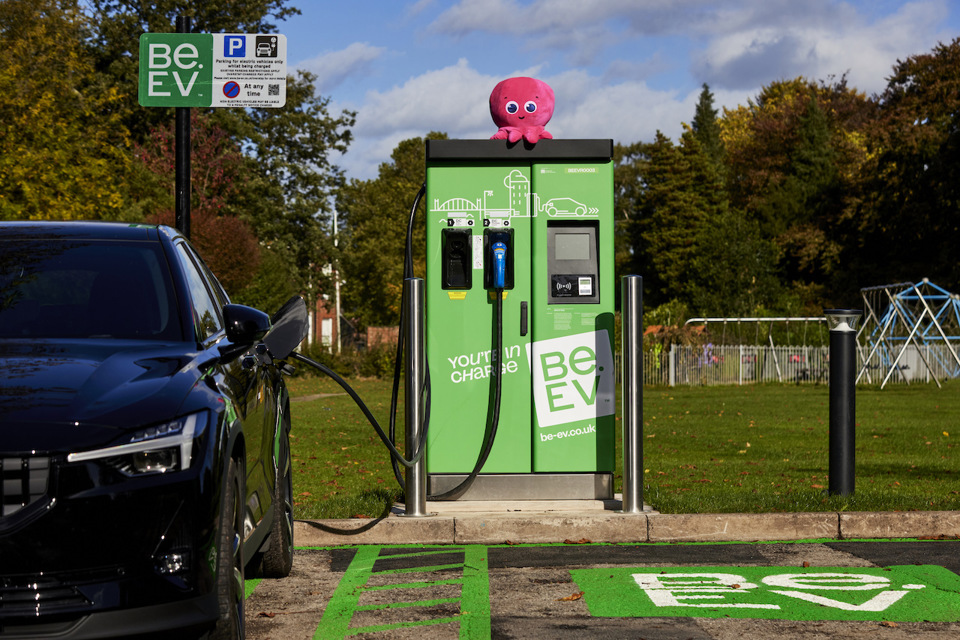




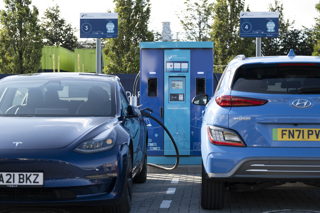
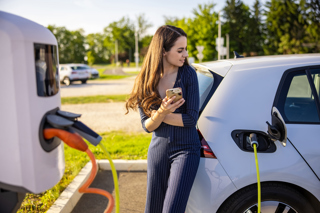
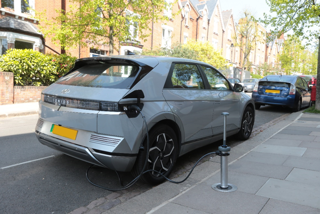
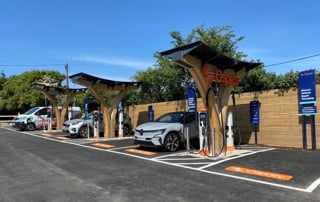












Login to comment
Comments
No comments have been made yet.